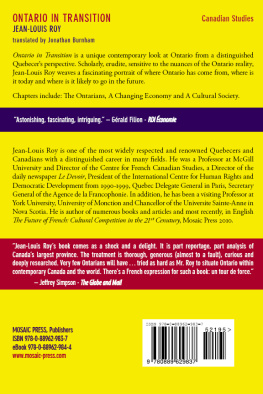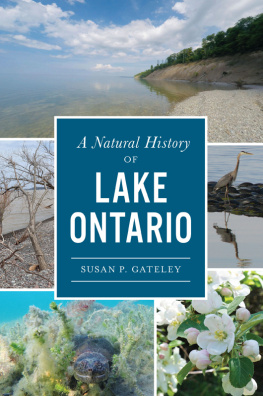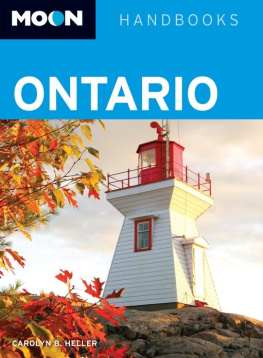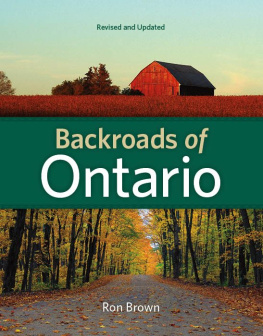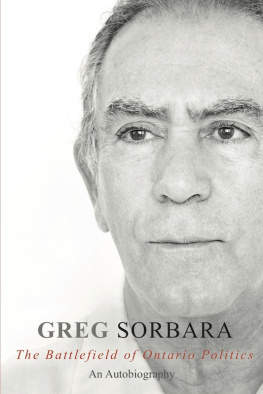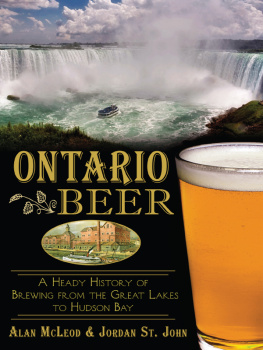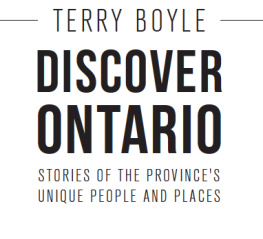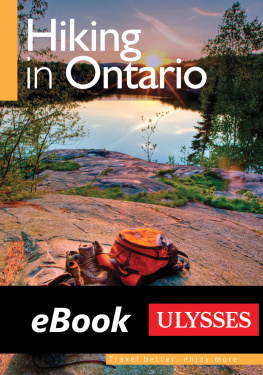ONTARIO IN TRANSITION
JEAN-LOUIS ROY
L IBRARY AND A RCHIVES C ANADA C ATALOGUING IN P UBLICATION
Roy, Jean-Louis, 1941
Ontario in transition / Jean-Louis Roy.
Translation of: Chers voisins.
Includes bibliographical references.
Issued also in electronic format.
ISBN 978-0-88962-983-7
1. Ontario--Economic conditions--21st century. 2. Ontario--Social conditions--21st century. 3. Ontario-- Politics and government--21st century. 4. Ontario-- Forecasting. I. Title.
FC3077.R69213 2013 971.305 C2013-900861-6
No part of this book may be reproduced or transmitted in any form, by any means, electronic or mechanical, including photocopying and recording, information storage and retrieval systems, without permission in writing from the publisher, except by a reviewer who may quote brief passages in a review.
Pubished by Mosaic Press, Oakville, Ontario, Canada, 2013.
Published in French as Chers Voisins (Stank), 2013.
MOSAIC PRESS, Publishers
Copyright Jean-Louis Roy
Translated by Jonathan Burnham
ISBN 978-0-88962-983-7
eBook 978-0-88962-984-4
book and cover design by Eric Normann
We acknowledge the financial support of the Ontario Media
Development Corporation (OMDC).
M OSAIC P RESS IN C ANADA: | M OSAIC P RESS IN USA: |
1252 Speers Road, Units 1 & 2 | c/o Livingston, 40 Sonwil Dr, |
Oakville, Ontario L6L 5N9 | Cheektowaga, NY 14225 |
phone: (905) 825-2130 | phone: (905) 825-2130 |
www.mosaic-press.com
ONTARIO IN TRANSITION
ACHIEVEMENTS AND CHALLENGES
JEAN-LOUIS ROY
Translated by Jonathan Burnham

TABLE OF CONTENTS
ACKNOWLEDGEMENTS
I reserve my first thanks to the many Ontarians who have so generously accepted to greet the unknown fact-finders that we were. An email or a short telephone conversation was often all it took for them to open their door to us, their files, their networks, their history and all the range of their fears and hopes for themselves, their community and their society. Herein, you will find them aware, enthusiastic, precise or poetic but always available, responsive and good-willed. Abundantly quoted in the following pages, their words are the backbone of this book, which is their work as much as mine.
Jonathan Burnham, Jrme Lankoand and Yves Ngorbo participated to varying degrees in the research, interviews and other tasks required in the exploration of a neighbouring society, one next to us but remote in many ways, similar and different at the same time, one that confirms and contracts what we thought we knew about it. They took part in the intellectual deconstruction and reconstruction of that society; they shared my doubts and unflinchingly dealt with my restlessness. I thank them for it all. Jonathan has been at my sides ever since the beginning of that project, from the first Ontarian trip to the long-lasting writing process. He also translated the original French version of that book. Two or three stars for his substantial contributions. Yves was the goldsmith of the minute last details, often the most critical. Well worth a star or two.
Our work benefitted from the contribution of the Government of Quebecs Secrtariat aux Affaires intergouvernementales canadiennes. We could also count on the hospitality of York Universitys Glendon College and even better, on the friendship, support and encouragements of its Principal, Kenneth McRoberts, its External Relations Director, Marie-Thrse Chaput, and its Executive Director, Gilles Fortin. The team at Mosaic Press, and especially Howard Aster, have made this book with a good dose of professionalism and trust. Let them all be warmly thanked here as well.
Lastly, I would dedicate this book to Ben Marc and Bryan; for the unwavering support of the former and as an answer to the latters questions, those of a curious child, which sometimes lightened long evenings of writing, and that specific one which inhabits me still: Tell me why you are writing this book.
INTRODUCTION
A S FAR AS WE CAN SEE in the future, Ontario will be the most populated province in Canada. It will also be the most culturally diversified. If the ongoing reconversion of its economy succeeds, it could regain its economic lan, and if its cultural momentum consolidates, it will be one of the most attractive. Furthermore, if the forecasted migration flows enrich Ontarios Asian population and if Toronto maintains its status of international financial centre, the metropolis could well become the Asian hub of the northeastern part of the continent. China Investment Corp. preferred it to all other North-American cities when it came to establishing its first office abroad. The International Indian Film Academy has shown the same preference when it decided to hold its awards ceremony, celebrating the worlds most important movie industry, in Toronto in 2011. The next years will be decisive. Ontarians face a constellation of defiant challenges.
Indigenous as far as we can trace in its immemorial past, European through its contemporary settlement, North American by geography and economy, Ontario is also Asian by virtue of the origin of a significant fragment of its population. This multi-headed genealogy makes Ontario one of the most diverse societies in the world. In these days of identity withdrawal, in Europe among others, it represents a true laboratory of the diversity that constitutes the future of the Occident. Finally, the province is one of Quebecs most significant vis--vis, its political partner for almost 175 years.
A central province in the country, Ontario is at the heart of numerous Canadian, continental and transcontinental networks due to its history, economy and diversity. Due also to information and communications technologies, whose significance was figured out by a succession of Ontarian thinkers, a priceless contribution to contemporary civilization: Harold Innis, Eric Havelock, Marshall McLuhan and Derrick de Kerckhove.
All good reasons to be interested by the Ontarian society, by the projects it is undertaking and the aspirations it holds. But there are others, just as significant: the evolution of values in neighbouring societies, the respective weight of the countrys regions, the coming components of the Canadian economy and the management of issues and challenges posed by the international communitys geo economic and geopolitical mutations.
If the current configuration of wealth production in Canada, which fluctuates from one historical period to the other, presently, favours Western provinces, it would be risky to draw firm conclusions and proclaim that these provinces now control the countrys agenda and will continue to do so in the long run. Admittedly, times are good for them, but Ontarios population today is 12.5 times that of Saskatchewan, 10 times that of Manitoba, 4 times that of Alberta and 3 times as important as that of British Columbia. Even when added up, the populations of these Western provinces remain well below that of the large central one. Incidentally, Ontarios 2010 gross domestic product (GDP) reached $641 billion, compared to Albertas $238.
To discard the economic progress of Western provinces would be just as absurd as to view the countrys economy solely on the basis of the exploitation and export of its natural resources. Such a view has to be exposed as what it is: a regression with disastrous economic, social and cultural consequences. All the countrys strengths have to be harnessed, upgraded and developed with clout and boldness: its natural resources, including energy; the production of advanced industrial and technological goods; the development of a high quality service sector, including international financial services; the consolidation of an education economy as well as a culture and entertainment economy, whose market on the world scene keeps expanding. Lastly, the country has a host of respected resources at its disposal, dedicated to political, economic and financial governance, the restoration of which promises to be one of the great tasks of this century. These resources constitute a formidable pool for research, employment, global networking and for Canadas reputation. We think of Waterloos Centre for International Governance Innovation (CIGI), for example.
Next page
